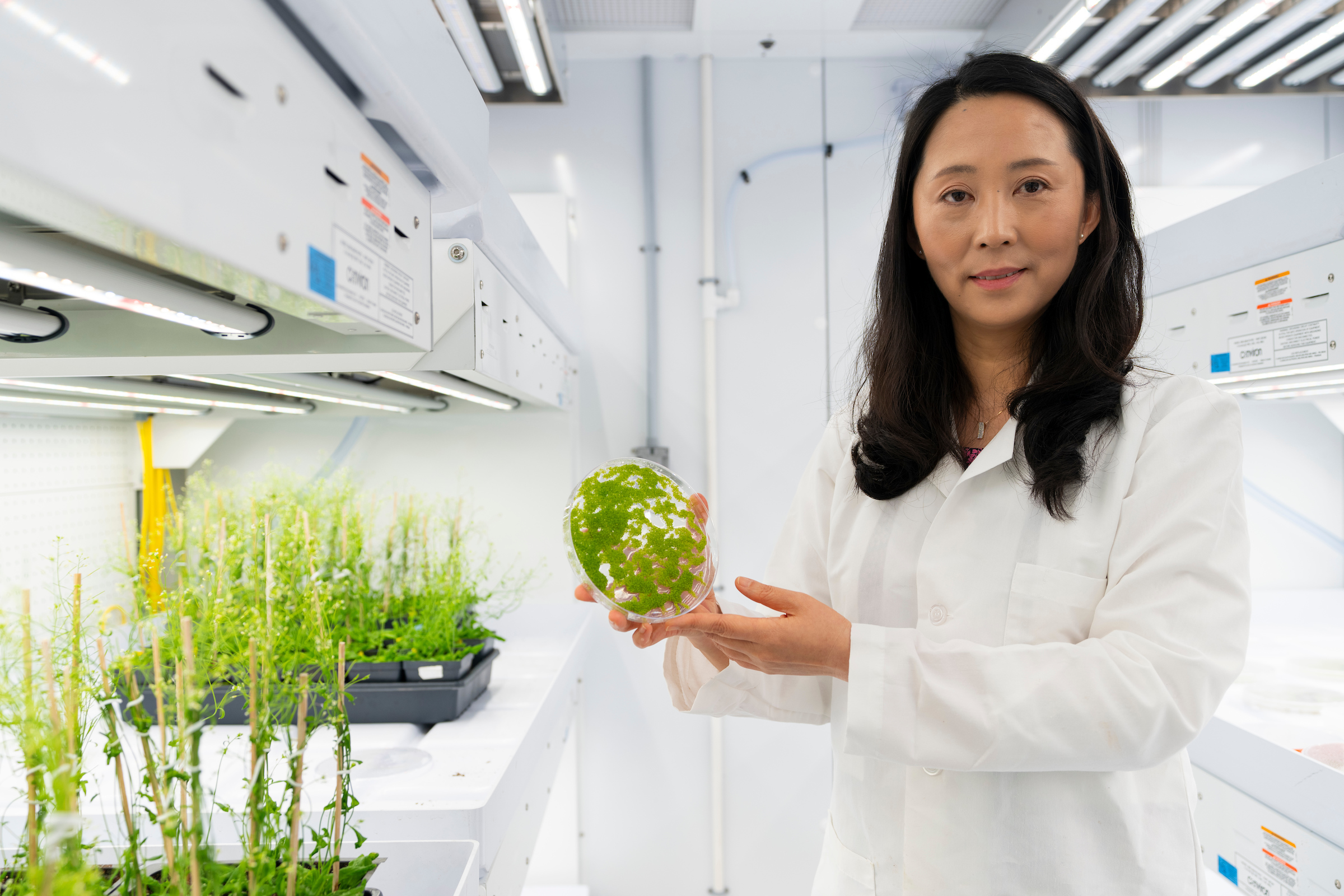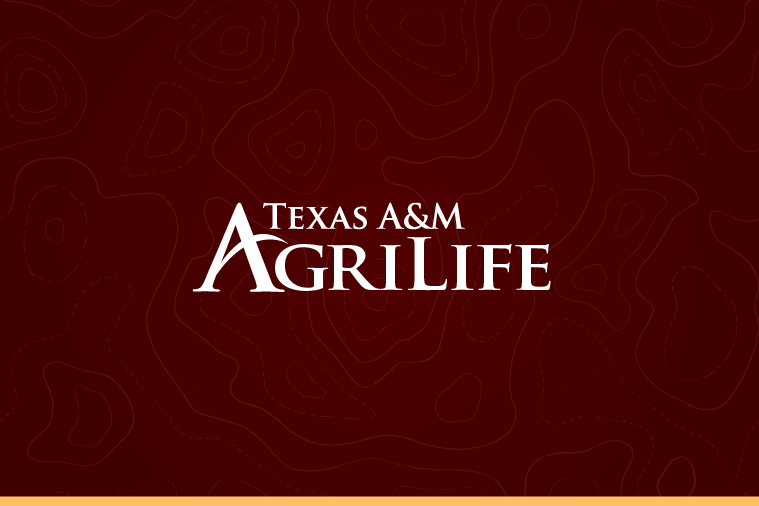Dong named Sadie Hatfield Endowed Professor in Agriculture
Endowed professorship, five-year grant support plant developmental biology researcher
Juan Dong, Ph.D., was recently named the Sadie Hatfield Endowed Professor in Agriculture. She joined the Texas A&M College of Agriculture and Life Sciences Department of Biochemistry and Biophysics in March this year.
With this endowed professorship, Dong will have access to additional resources to help further her research in molecular genetics, cell signaling and plant development. The five-year appointment was approved in July.
“Dr. Juan Dong is a leader in biochemistry, and we are excited to support her work with the Sadie Hatfield endowment,” said Jeffrey W. Savell, Ph.D., vice chancellor and dean for Agriculture and Life Sciences. “This recognition is just the start of her journey with Texas A&M, and we look forward to seeing how her research will address global challenges by enhancing efficiency and sustainability in agriculture.”
In addition to the endowed professorship, Dong received a five-year grant from the National Institutes of Health, NIH, earlier this year. This grant will support her research into the mechanisms of cell division in plant development and allow her to expand her research scope and collaboration in the department and beyond.

Detailing plant development
Dong said she always knew she wanted to study biochemistry.
While working as a postdoctoral fellow at Stanford University, she became interested in cell polarity, a necessity for cell differentiation. Before a cell divides, different molecules are separated to opposite ends, or poles, of the cell so that each daughter cell takes on a separate fate and identity after division.
“The first time I saw how polarized proteins looked in this very young plant tissue, I thought, ‘Is this true? Am I seeing this wrong?’ It’s just something that looks so amazing, you can’t believe your eyes,” she said.
Dong focuses on how cell polarity is initiated and maintained in cells that eventually become stomata, the small pores on plant leaves that open and close for gas exchange.
She hopes to build a comprehensive model for plant cell polarization and its regulation in asymmetric cell division. She said this will primarily involve identifying the proteins key to determining cell fates and all those involved in maintaining their polarity. She’s also interested in how these processes contribute to plants’ adaptive responses to environmental changes.
Contributions to the field
Dong said that receiving the Sadie Hatfield Endowed Professorship will enable her to generate preliminary data to secure additional grants, especially in agricultural research.
Most of her previous work has focused on the basic biology and fundamental knowledge of these plant processes, but she hopes to expand the scope of research to include more practical applications and key agricultural crops.
In addition to this recognition from Texas A&M, Dong was previously awarded the 2016 Women’s Young Investigator Award from the American Society of Plant Biologists and has published more than 40 peer-reviewed journal articles. She also serves as associate editor for the journal Plant Physiology and editor for the Journal of Integrative Plant Biology.
A new chapter at Texas A&M

Dong is eager to leverage the strengths of the Department of Biochemistry and Biophysics to advance her research, especially through collaborations with department faculty members.
“I see the strength of my colleagues here as a major opportunity to collaborate and expand my research scope,” she said. “This is an agricultural college with a central goal of achieving more sustainable plant biology. This aligns perfectly with my research interests in creating more resilient plants capable of adapting to changing environments.”
Dong relocated to College Station in June and her lab is already near full operational capacity, with five of her previous lab members joining her in the transition from Rutgers University to Texas A&M. They’ll continue with the projects they began in her lab there.
“We were really fortunate to have most of my lab’s team join the department,” she said. “I think it shows their commitment and love for their projects, and I hope to continue supporting them to help maximize our collective success here at Texas A&M.”





